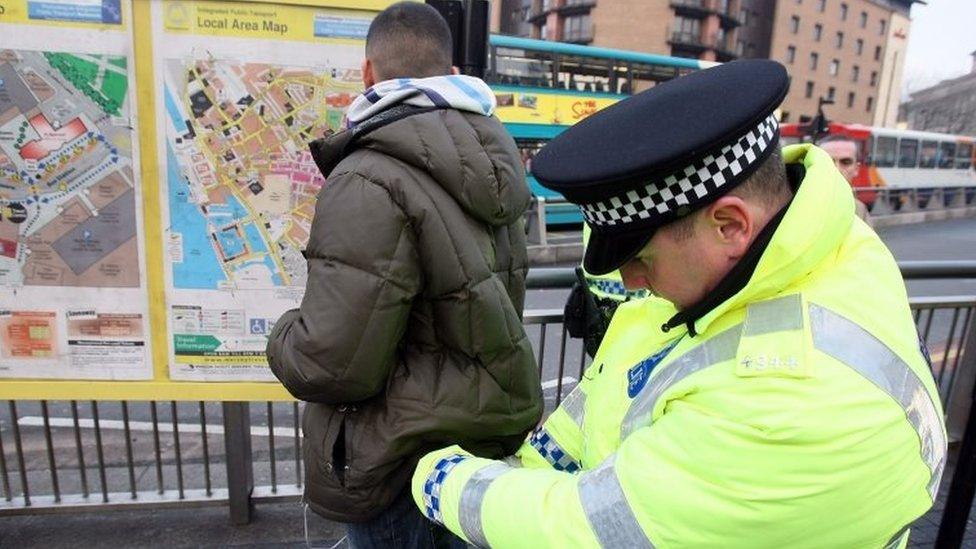Stop and search powers 'used on thousands of NI children'
- Published
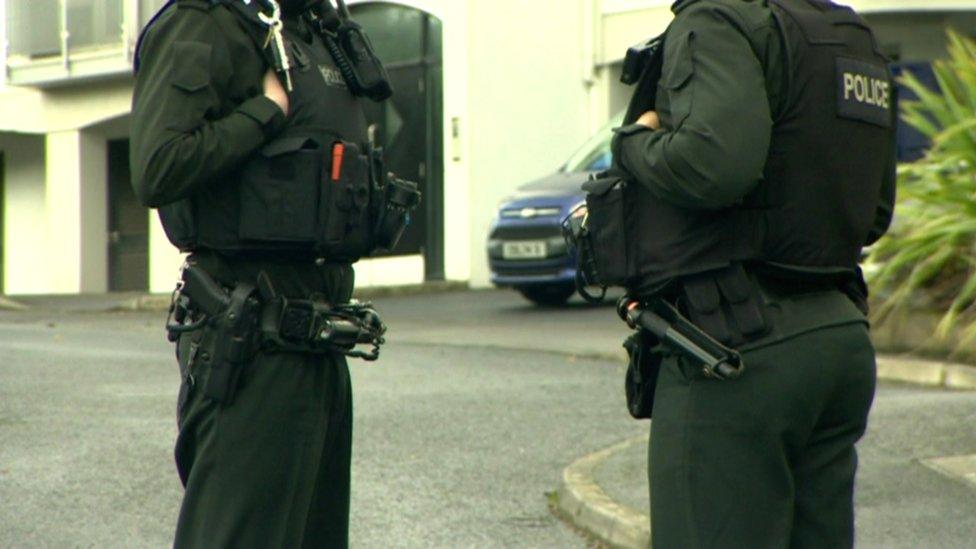
Police in Northern Ireland carry out an average of 31,000 stop and searches per year
Thirty-five thousand children were subject to stop and search by the PSNI between 2011 and 2019, according to research by two academics.
It also suggests that between 2005 and 2016 the use of the powers increased by 74% in Northern Ireland.
In England and Wales over the same period its use fell by 75%.
On Wednesday, Queen's University is hosting a conference on young people, policing and stop and search powers in Northern Ireland.
The research was conducted by Queen's academic John Topping and Ben Bradford of the University of Central London, who will both be taking part in the conference.
Also attending will be PSNI Chief Constable Simon Byrne, Prof Ann Skelton of the United Nations Committee on the Rights of the Child and Koulla Yiasouma, the commissioner for children and young people for Northern Ireland.
The research also found that the arrest rate resulting from stop and search in Northern Ireland was 7%, compared with 17% in England and Wales.
In Northern Ireland, stop and search can be used under "ordinary" policing powers, as in the rest of UK, and also under terrorism and security legislation.
About 70% of stop and searches in Northern Ireland are carried out under everyday powers, the majority of them under the Misuse of Drugs Act.

PSNI Chief Constable Simon Byrne will attend Wednesday's conference
There are an average of 31,000 stop and searches carried out each year in Northern Ireland, about 22,000 of which are under ordinary policing powers rather than terrorism related.
Including terrorist-related stops, the stop rate was 17 per 1,000 of population in 2016-17 - 13 per 1,000 excluding terrorism stops.
That compared to an average of five per 1,000 in England and Wales.
Dr Topping, one of the authors of the research, said the conference "represents a timely and much needed examination of issues related to the policing of children and young people".
He added: "While much of the past 20 years have been about structural and systemic changes to policing here, children and young people have tended to remain on the margins of the police reform process."
'Community concerns'
In a statement, the PSNI said that there are different threshold levels to conduct a stop and search in Northern Ireland than in England and Wales.
"The PSNI do not regard arrest as the only positive outcome as a result of stop and search," said a spokesman.
"The primary purpose of stop and search is to enable officers to allay or confirm their suspicions without exercising their power of arrest."
"Since April 2019, 749 young people were stopped and searched with three-quarters being under Misuse of Drugs legislation.
"This is a proactive response to the increase in young people losing their lives whilst under the influence of drugs and a direct response to community concerns."
The spokesman said there has been a 34% decrease in stop and search of children and young people over the last five years.
Paddy Kelly, the director of the Children's Law Centre, said 15 to 17-year-old boys are four times more likely to be stopped than anyone else in Northern Ireland.
"The high rate of stop and search of young people is an ongoing concern," she added.
Paul Rodgers of Include Youth said: "It would seem that the negative impact in terms of the damage caused to relations between young people and the police far outweighs any benefits of the stop and search process."
- Published26 July 2019
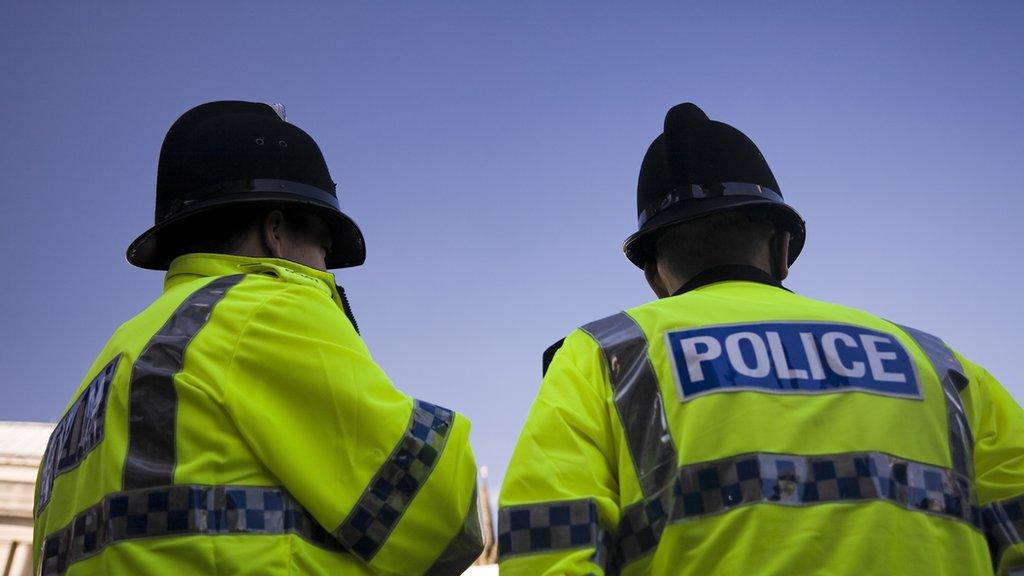
- Published31 March 2019
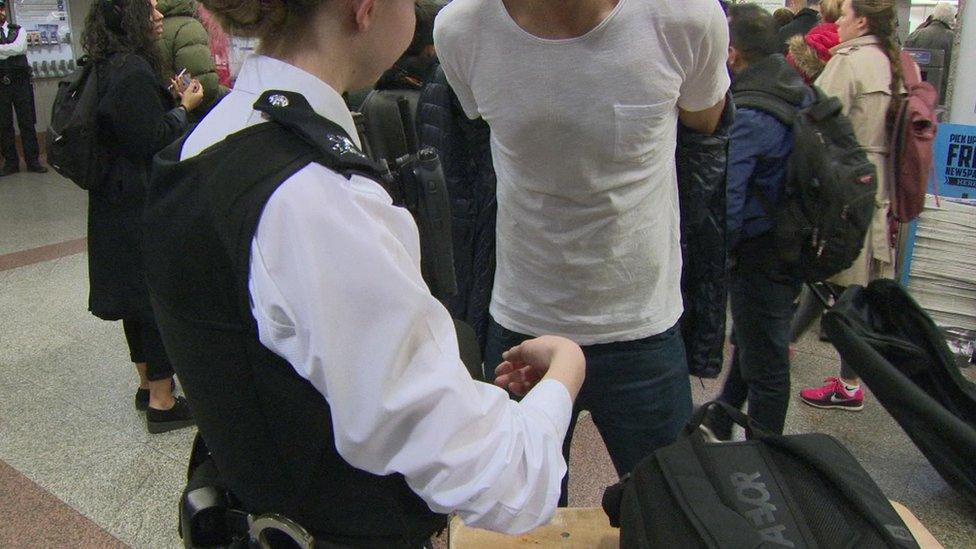
- Published26 July 2019
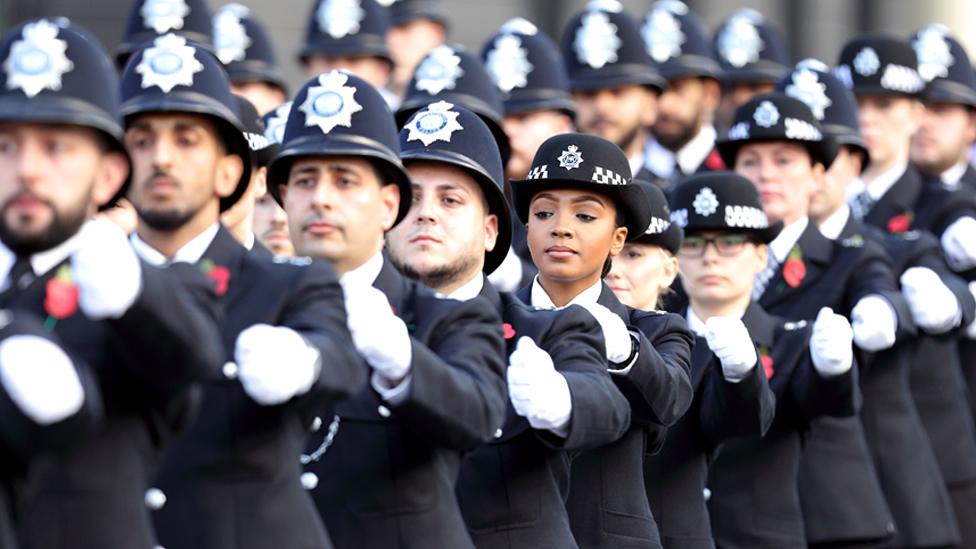
- Published8 November 2018
